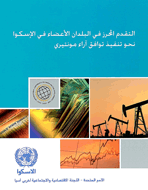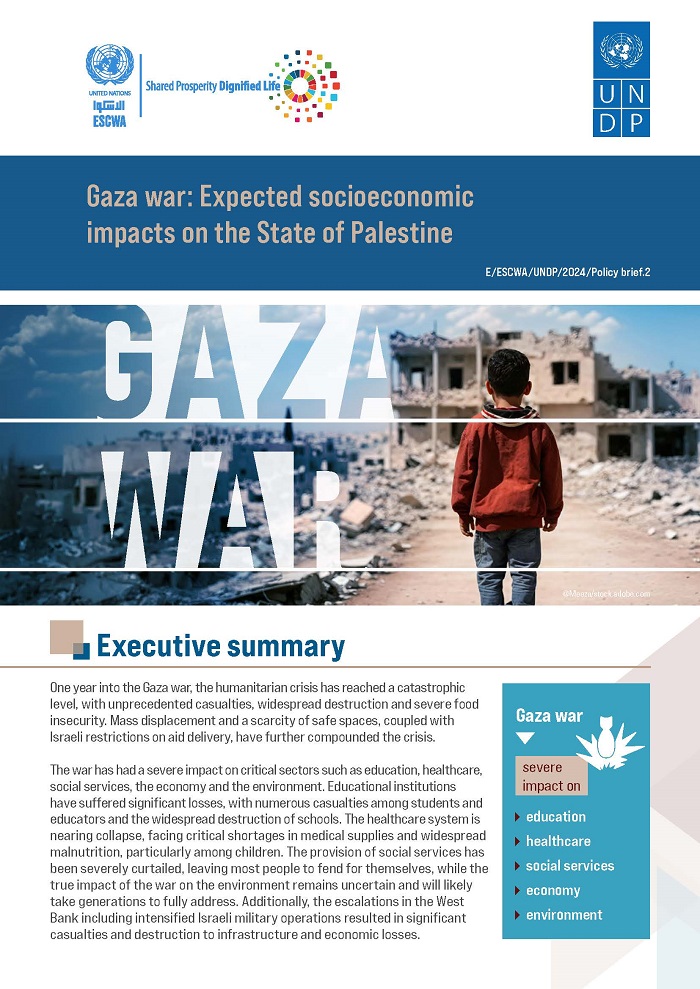
ESCWA Publication: E/ESCWA/EDGD/2010/2
Country: Arab region, Kingdom of Bahrain, Arab Republic of Egypt, Hashemite Kingdom of Jordan, State of Kuwait, Lebanese Republic, Sultanate of Oman, State of Qatar, Republic of Sudan, Syrian Arab Republic
Publication Type: Reports & studies
Cluster: Shared Economic Prosperity
Focus Area: Financing for development, Governance & enabling environment
Initiatives: Integrated national financing frameworks
SDGs: Agenda 2030
Keywords: Arab countries, Corruption, Development finance, Financial resources, Foreign direct investment, Foreign trade, Economic growth, Tax systems, Trade liberalization, Exports, External debt, Public debt, Remittances, Financial crisis, Stock markets, Economic crisis, Banks
Progress Achieved by ESCWA Member Countries towards Implementing the Monterrey Consensus
January 2010
This study reviews the progress achieved by ESCWA member countries in implementing the recommendations contained in the Monterrey Consensus of the International Conference on Financing for Development (Monterrey, Mexico, March 2002), during the last six years with a focus on 2008. It also reviews the impact of the global financial crisis on the performance of member countries in the six leading actions related to financing for development, namely: mobilizing domestic financial resources for development; mobilizing international resources for development; international trade as an engine for development; increasing international financial and technical cooperation for development; external debt; and addressing systemic issues.
The study indicates different levels of progress. Oil exporting countries achieved higher level of progress while the less developed countries have faced significant difficulties with regard to the flow of foreign resources, which limited their capability to fully implement the recommendations. It concludes that a significant number of member countries are still facing such obstacles as the limited role of the banking sector, the small volume of financial markets, problems related to bureaucracy and financial and administrative corruption. In addition, the flow of foreign resources, in particular foreign direct investment, remains directed to a small number of member countries.
Related content
Financing for development
, Governance & enabling environment
,
This study reviews the progress achieved by ESCWA member countries in implementing the recommendations contained in the Monterrey Consensus of the International Conference on Financing for Development (Monterrey, Mexico, March 2002), during the last six years with a focus on 2008. It also reviews the impact of the global financial crisis on the performance of member countries in the six leading actions related to financing for development, namely: mobilizing domestic financial resources for development; mobilizing international resources for development; international trade as an engine for development; increasing international financial and technical cooperation for development; external debt; and addressing systemic issues.
The study indicates different levels of progress. Oil exporting countries achieved higher level of progress while the less developed countries have faced significant difficulties with regard to the flow of foreign resources, which limited their capability to fully implement the recommendations. It concludes that a significant number of member countries are still facing such obstacles as the limited role of the banking sector, the small volume of financial markets, problems related to bureaucracy and financial and administrative corruption. In addition, the flow of foreign resources, in particular foreign direct investment, remains directed to a small number of member countries.



